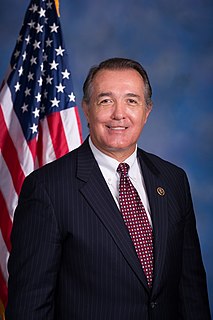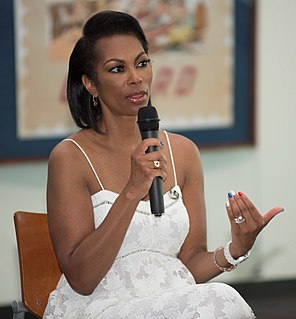A Quote by Barack Obama
The president does not have power under the Constitution to unilaterally authorize a military attack in a situation that does not involve stopping an actual or imminent threat to the nation. As commander in chief, the president does have a duty to protect and defend the United States. In instances of self-defense, the president would be within his constitutional authority to act before advising Congress or seeking its consent.
Quote Topics
Act
Actual
Advising
Attack
Authority
Before
Chief
Commander
Commander In Chief
Congress
Consent
Constitution
Constitutional
Defend
Defense
Does
Duty
His
Imminent
Involve
Military
Nation
Power
President
Protect
Seeking
Self
Self-Defense
Situation
States
Stopping
Threat
United
United States
Within
Would
Would Be
Related Quotes
Under Article II, all executive power is vested in one president of the United States. The regulatory state is Congress's efforts to undermine the president's authority. And my hope is we will see a president use that constitutional authority to rein in the uncontrollable, unelected bureaucrats and to rescind regulations.
No power but Congress can declare war; but what is the value of this constitutional provision, if the President of his own authority may make such military movements as must bring on war? ... [T]hese remarks originate purely in a desire to maintain the powers of government as they are established by the Constitution between the different departments, and hope that, whether we have conquests or no conquests, war or no war, peace or no peace, we shall yet preserve, in its integrity and strength, the Constitution of the United States.
I believe that the power to declare war is most important in limiting the powers of the national government in regard to the rights of its citizens, but that it does not require Congress to give its approval before the president uses force abroad. I do not believe that the framers of the Constitution understood the power to declare to mean "authorize" or "commence" war. That does not mean that the separation of powers or checks and balances will not work.
President Barack Obama couldn't bring everything into existence through Congress. Because from the day that he was elected president of the United States, the United States Congress, many of the Republicans met, and they declared that they would never allow his legislative program to succeed. And for eight years they fought him.
One of the great things about the United States is that when it comes to world affairs, the president obviously is the leader of the Executive Branch, the Commander-in-Chief, the spokesperson for the nation, but the influence and the work that we have is the result not just of the president, it is the result of countless interactions and arrangements and relationships between our military and other militaries, and our diplomats and other diplomats, the intelligence officers and development workers.
Normally what happens in a new presidency is the president has a big agenda, and Congress is full of people with human weaknesses. And so the president indulges the human weaknesses of members of Congress in order to pass his agenda. This time it's the other way around. Donald Trump does not have much of an agenda. Congress burns with this intense Republican agenda and so does Congress that has to put up with the human weaknesses of the president in order to get a signature on the things it desperately wants to pass.
































